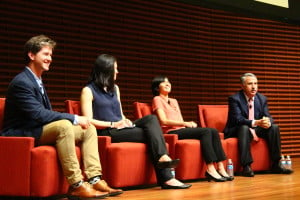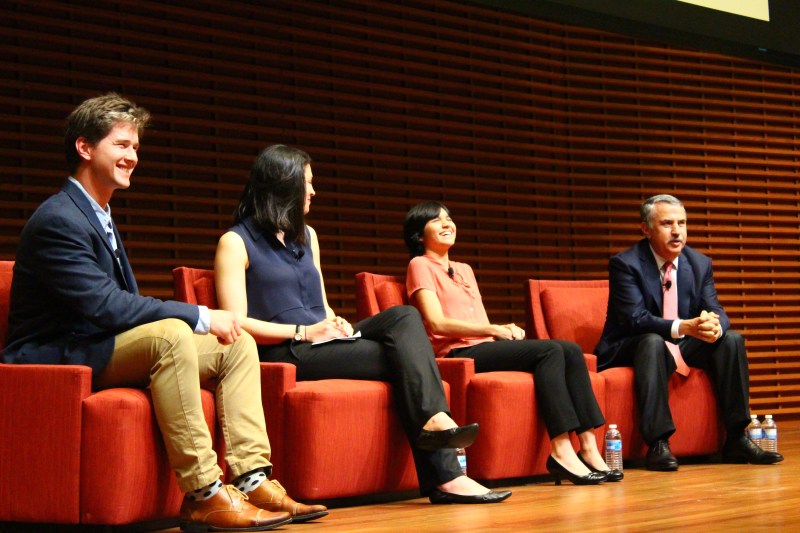During a discussion with the Stanford community at Cemex Auditorium on Feb. 8, Thomas L. Friedman said he was “not for divestment” from companies allegedly aiding Israel. A three-time Pulitzer Prize winner and columnist for The New York Times covering international affairs, Friedman has written extensively on the Middle East.

The conversation was part of a lecture commemorating Daniel Pearl ’85, a Wall Street Journal reporter murdered by Al-Qaeda in 2002 when he was investigating a terrorist nexus in Pakistan. After Pearl’s former classmates and father delivered their speeches, Friedman talked with three Stanford students about Middle East situations and journalism.
When asked about his opinions on the Boycotts, Divestment and Sanctions (BDS) movement intending to put pressure on Israel, including the ongoing divestment campaign at Stanford, Friedman voiced his concerns that such movements are not compatible with the two-state solution. At the same time, he also expressed his opposition to Israeli settlements in Palestine beyond the peace map, which he believed “could well lead to the death of Israel as a Jewish democracy.”
“I would fight the BDS movement as if there are no settlements,” Friedman said. “And I will oppose the settlements as if there is no BDS movement.”
To him, both are exacerbating the situation and sabotaging the possibility of a two-state solution.
“So I’m not for divestment,” Friedman said. “I’m for investment. Tell me that you’re going to invest in seeds of peace.”
Friedman also referred more concretely to investing in funds that epitomize Israelis’ and Palestinians’ collaborative efforts, such as the U.S.-based New Israel Fund, which describes its goal as “advancing democracy and equality for all Israelis.”
He also mentioned the violence committed by regimes in countries such as Syria, Saudi Arabia and Egypt and noted that he would not consider divestment specifically aimed at Israel until similar divestment campaigns focusing on these other countries have begun.
To Friedman, the key to resolve the Israeli–Palestinian conflict is the Clinton Parameters, which he considered a “very good, fair, just plan.” According to the Clinton Parameters, first proposed by former President Bill Clinton in 2000, Palestine would constitute the Gaza Strip and roughly 95 percent of the West Bank, with the remaining land available for Israeli settlements. In exchange, one to three percent of the Israeli territory would be ceded to Palestine.
Friedman envisioned the Parameters as the only practical way to bring peace to the Middle East.
“If you are for that plan, you are my friend; if you are not for that plan, you are not my friend,” Friedman said.
Having been criticized by people and organizations both pro- and anti-Israeli settlements, Friedman said he was not critical of Israel, but only “fairly critical of certain Israeli policies by certain Israeli governments.”
He added that he does not work for the Jewish press and has been observing the Middle East situation from his own perspective. Despite some disapproval of Israeli actions, he spoke of his feelings for Israel as “tough love” and believed that “tough love is the only true love.”
Contact Qitong Cao at qitong ‘at’ stanford.edu.
